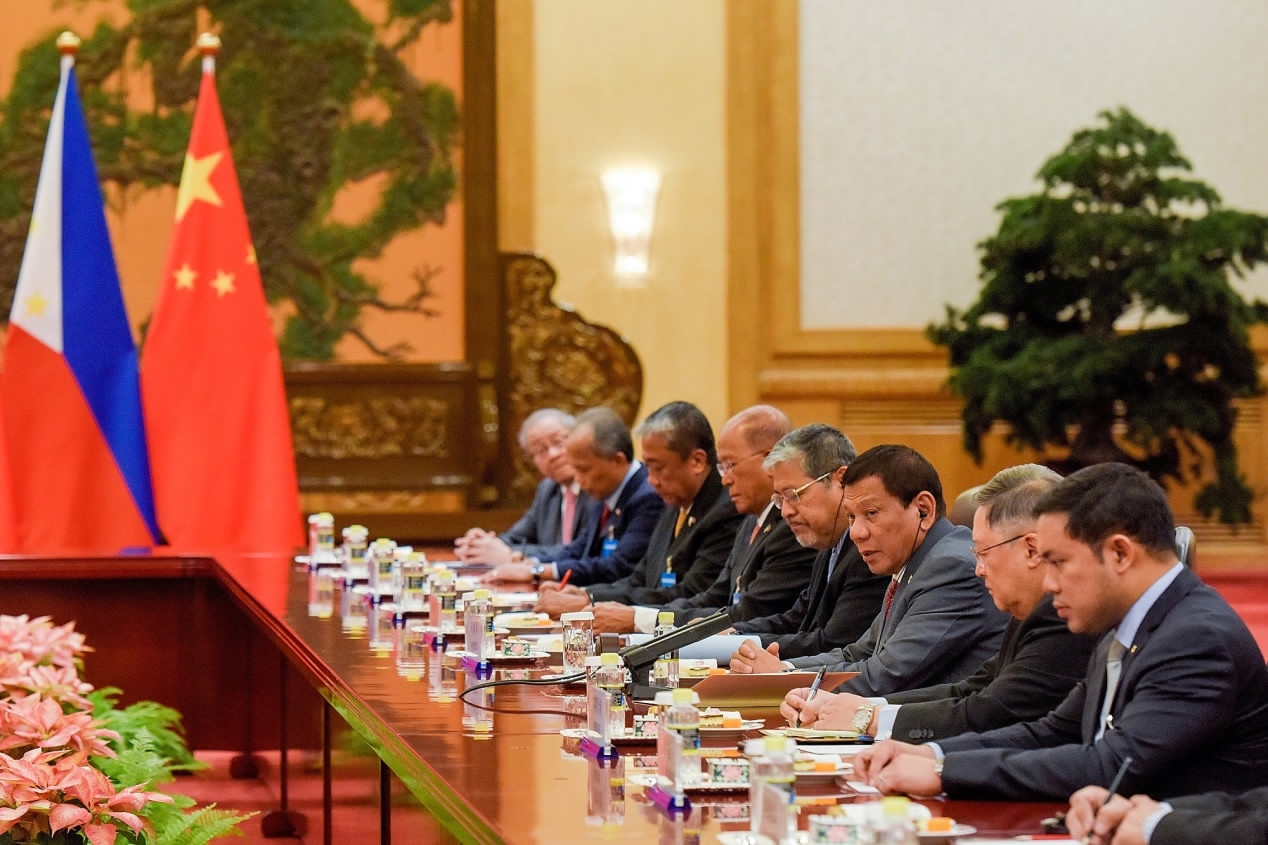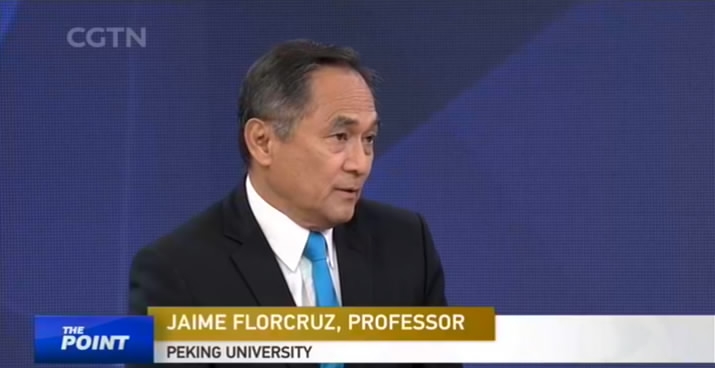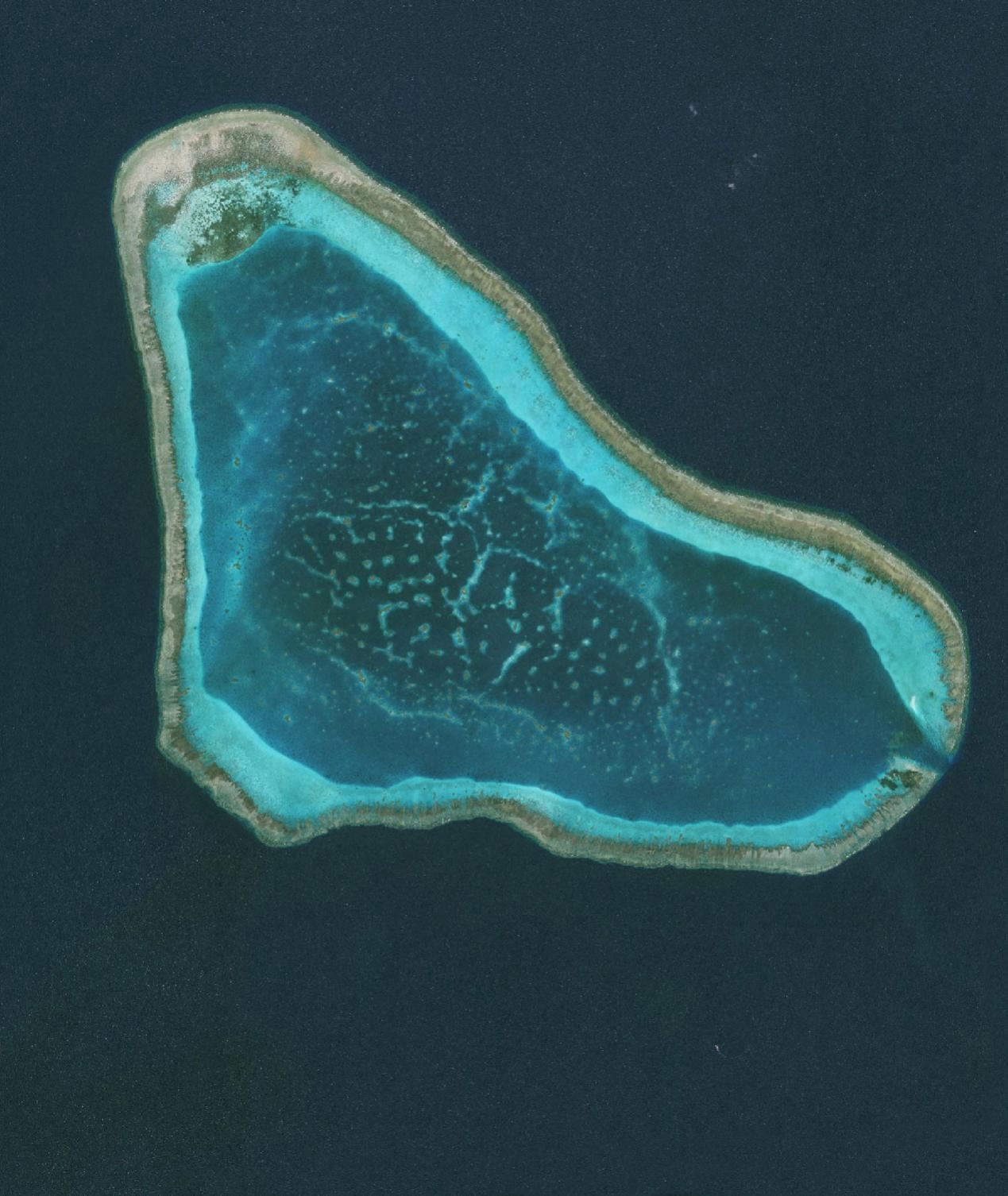By CGTN’s Wang Duan
The first meeting of the 'bilateral consultation mechanism' on the South China Sea issue between China and the Philippines was held yesterday in the southwestern Chinese city of Guiyang.

Philippine President Rodrigo Duterte (3-R) spoke during his bilateral meeting with Chinese President Xi Jinping (not pictured) during the Belt and Road Forum, at the Great Hall of the People in Beijing. /VCG Photo
Zhu Feng, executive director of the China Center for Collaborative Studies of the South China Sea at Nanjing University, highlighted the significance of the meeting. "It is remarkable and it is a big sign that Beijing and Manila could eventually agree to revitalize bilateral negotiations," he said.
Just a few days ago during the Belt and Road Forum in Beijing, Philippine President Rodrigo Duterte and Chinese President Xi Jinping reached consensus on resolving the South China Sea issue through dialogue and consultation .
In fact, the China-Philippines standoff over Huangyan Island in 2012, the arbitral tribunal’s jurisdiction over China-Philippines maritime disputes from 2013 to 2016, and the issues involved in the South China Sea have made the China-Philippines relationship strained. Even though China has been seeking opportunities to start bilateral consultations with the Philippines over the disputes for a long time, it hasn’t worked smoothly.
Since President Rodrigo Duterte came into power in 2016, he has shifted his attitude towards China compared with his predecessor.

Jaime FlorCruz /CGTN Photo
"Duterte is taking a pragmatic approach. He hasn’t given up claims over those disputed islands, but he would like to set them aside and pursue a pragmatic relationship with China on trade, commercial business and the infrastructure projects,"Jaime FlorCruz, professor of Peking University, told CGTN's "The Point with Liu Xin."
After returning from Beijing, Duterte described his trip as a “windfall” for the Philippines, saying China had offered investment and aid. He also said he was open to jointly exploring the South China Sea’s natural resources with China and Vietnam, which reminded Zhu Feng of former Chinese leader Deng Xiaoping’s idea on settling the disputes through working on joint development, which could benefit all sides.
It is notable that Duterte’s policy towards China has its critics as well. Jaime FlorCruz said some people in the Philippines think the way in which Duterte is proceeding in relations with China makes him a traitor.

Huangyan Island, South China Sea. /VCG Photo
For many international observers the big question following this first meeting is: How will the China-Philippines relationship develop in the future?
"It depends on how strong Duterte remains as the leader of the Philippines," Jaime FlorCruz said.









